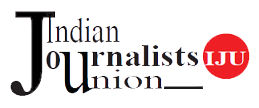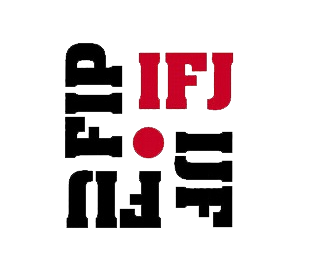- Sabina Inderjit
Include ‘her voice’, strengthen unions by changing with the times, adapt to digital tools, take the campaign on press freedom to the internet and fight impunity using new media, are significant strategies that leaders of journalist unions must adopt in these challenging times. Not a sermon but ideas which emerged after two days each of brainstorming during two meetings ‘Making Gender Equity a Reality’ and ‘Strategies for Change’, organised by IFJ Asia Pacific in Kathmandu.
Experiences varied as there were participants, both young and old, from 14 countries across the region—India, Pakistan, Afghanistan, Sri Lanka, Nepal, Bhutan, Bangladesh, Cambodia, Malaysia, Indonesia, Myanmar, Mongolia, the Philippines and Vanuatu. More importantly, the sharing of ideas prioritised issues; strategies debated and plan of action agreed by the participants, divided into different groups. That is to say, it was not experts giving lectures and recommending suggestions but the journalist/unionists/activists taking stock of the situation and making their own call.
Though exhausted after all the hard thinking and plodding, there was unanimity on the priorities set and resolutions were adopted demanding journalists’ rights, gender equity, press freedom, and an end to impunity. The deliberations were of high quality and the enthusiasm of the young encouraging.
At the Gender Equity meeting (21-22 November), which was all-women, there were no two opinions that while women journalists were actively involved in the profession, their presence in unions was dismal. Leadership building and having them in decision-making positions in unions would follow only after the women joined unions. While women themselves needed to carve a niche, it was the unions’ leadership, largely male-dominated, which must make sincere efforts and not just give lip service. The unions therefore must “adopt gender policies and/or amendments to Constitution to incorporate gender equity principles.”
Known issues such as lack of women in unions, pay gap, balancing between family needs and sexual harassment at work place, were dealt with along with sharing of good practices through experiences of some women. Importantly, exploring challenges and opportunities in the digital space against online harassment, provided a fresh insight for many. Sexual harassment and trolling must and can be fought back with different kinds of strategies and use of tools on facebook, twitter etc.
“We, women media unionists from the Asia Pacific region claim our rightful place in the media and unions. For this, media unions must effectively address issues of gender equity and adopt best practices in order to strengthen the numbers and voices of women in unions, especially in decision-making positions. Active mentoring; capacity building; leadership training; family-friendly union practices; implementation of policies against sexual harassment; and active engagement of men can remove barriers to women’s growth in professional as well as union settings, ” reads the resolution. The bottomline: “Change has to come from within unions in order to make a real impact in the wider media environment.”
In the two-day Strategy Forum (23-24 November), the participants from South Asia Media Solidarity Network (SAMSN) and South East Asia Journalist Unions (SEAJU) too broke into groups, set out what they considered were the big issues and challenges for their unions. But first problems had to be realised. That done, they put together top priorities and resolved to share knowledge, make use of new technologies, and strengthen membership to effectively continue their struggle for press freedom and journalists’ rights. Representatives from the International Labour Organisation and Twitter shared knowledge and skills and in fact educated many a participant to effectively use social media in union works, combat online harassment and remain safe in the digital space.
Safety of journalists and the fight against impunity for crimes against journalists was a critical issue with a presentation from Pakistan, Afghanistan and Philippines on what strategies could be adopted to put pressure on governments. International conventions signed by their respective governments must be highlighted to make governments answerable was a strong tool. With India being a focus country of the IFJ in its impunity campaign a resolution was passed demanding: “The immediate enactment of a Journalists’ Protection Act at the national level and other mechanisms to address the suffering of families of slain and attacked journalists. The impunity of perpetrators, which has a devastating effect on press freedom in India must end forthwith.”
The resolution also called for amendments in the Working Journalists Act to include the entire media compass; and stringent action against earring media management for non-implementation of statutory wage awards. This meeting specifically demands the constitution of a national level Media Commission which has been long overdue in view of the new media evolution and far-reaching changes in the media industry. We also demand the inclusion of electronic media in the purview of the existing press council, and make it a media council.
“We also demand immediate annulment of contract appointment in media as it is an unfair labour practice and an infringement in the freedom of the press. We call for the implementation of the Supreme Court verdict on equal pay for equal work regardless of the nature of appointment in the media industry.”
Kashmir too came into focus and in another resolution the meeting strongly condemned the attacks and restrictions on media reporting of the Kashmir conflict, in particular the arbitrary ban on the Kashmir Reader daily newspaper. “We also condemn the restrictions on the use of internet and mobile phones in the conflict-affected Kashmir Valley, which affects newsgathering and dissemination,” said the resolution, which also called urgently for peace and regretted the firings by security forces on unarmed people, including the use of pellet guns that have blinded many civilians, including children.
It also noted “We regret the four-month long curfew in the Kashmir Valley that has brought the area's economy to a standstill and has also affected the media industry by reducing advertisements to publications and resulting in unemployment among media workers. Curfews, search and cordon operations make journalists' jobs harder and distribution of newspapers extremely difficult. Finally, we urge our media colleagues on both sides of the India-Pakistan border to eschew jingoism, observe restraint and promote resolution of the conflict by talks with all parties concerned.”
The meeting stood in solidarity with colleagues from the Philippines to commemorate November 23, 2009, when 32 journalists were massacred in Ampatuan, now acknowledged as the single deadliest attack on the press on record. A resolution to express that solidarity reads: “Even as colleagues from the Philippines are both chasing elusive justice and are feeling besieged. Seven years after the Ampatuan massacre, we continue to be anxious about the safety of our Philippine colleagues as they go about uncovering and reporting the travails of their national community. The solidarity declaration is an assurance that the international media community is solidly behind them as they dare speak truth to oppressive power.” Later in the evening of November 23, the participants paid homage to the slain journalists with candle lights and vowed “we will never forget.”
On 24th the curtains came down on the meetings, but the entire exercise couldn’t end there. The various groups had set out campaigns that needed to be carried out. In fact, measurable targets for their success were also charted out. The agenda as agreed had to be carried forward. Back home, more work had to be done.




